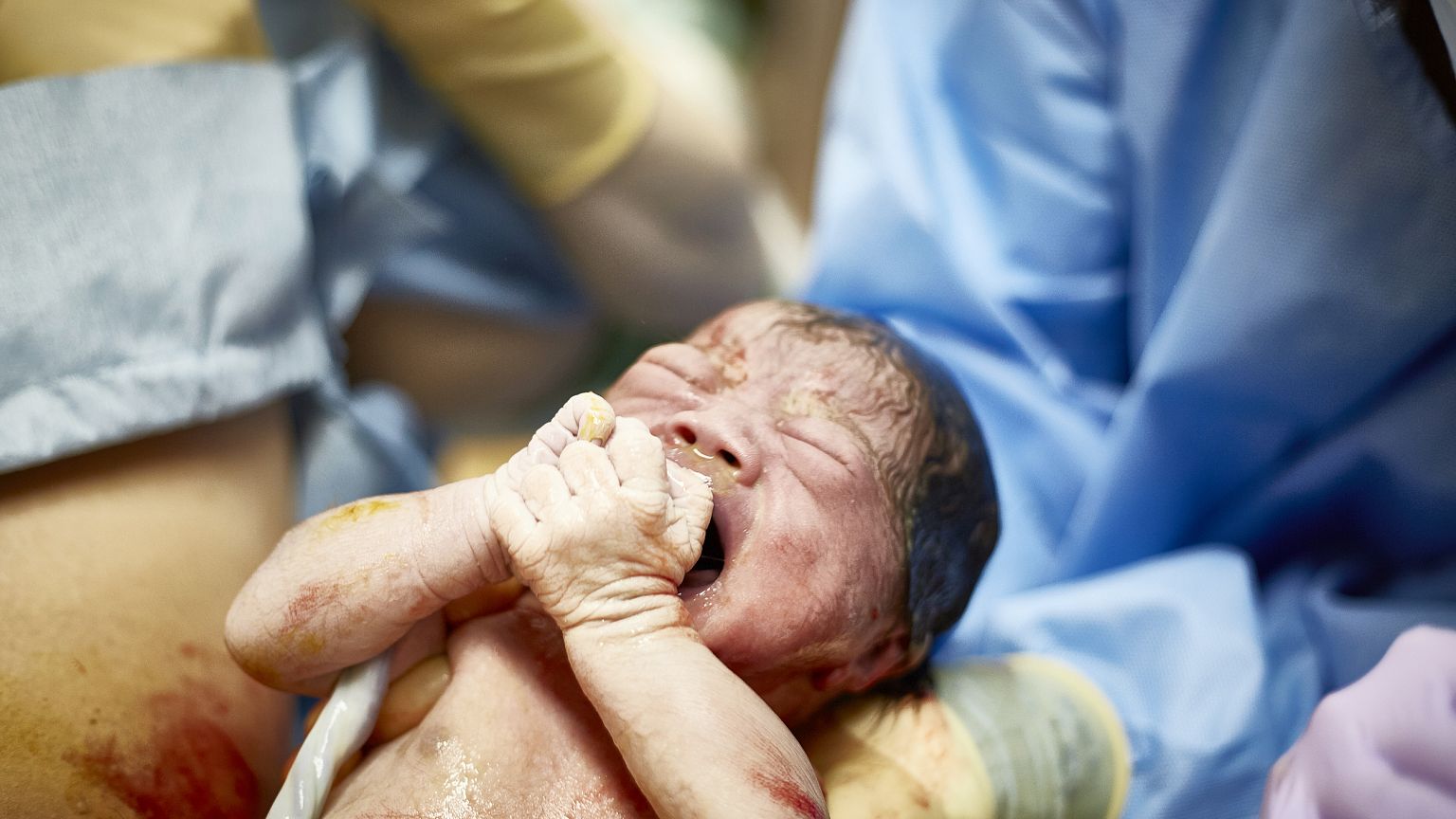Why do so many minority women report poor treatment due to ethnicity, cultural background, or language?
A friend of mine, who is Mexican-American, had a joyful and uneventful first pregnancy. Until her day of delivery.
The process began routinely enough. When she began laboring and her contractions were less than 5 minutes apart, she and her husband scooped up her pre-packed bag and drove to the hospital. Shortly after arriving, she was examined by an obstetrician and told she was still early in labor and that it would be several hours — potentially not until the next day — before she delivered.
However, almost immediately after her exam, she felt a precipitous change. "I didn't have a point of reference since I'd never delivered before, but I had this sense that things were progressing unusually fast," she told me later. Her husband pressed the call button and asked for help. The doctor returned and reassured them that it would be many hours until delivery, advising her, "Try to calm down. It's still early." Her husband protested, "If she thinks something is wrong, it is." Nevertheless, the doctor just reiterated his reassurances and left the room.
A short while later, she told her husband, "I feel like pushing." Her husband called urgently for the nurse, who came into the room and placed a fetal monitor across her abdomen. Seeing a concerning pattern in the baby's heart rate, she paged the doctor. "The next thing I knew, I was being wheeled to the operating room for an emergency C-section."
After a rocky hospital course, ultimately both baby and mother did well. But my friend still feels frustrated with how her concerns were ignored. "I felt like he [the doctor] had me labeled as a 'hysterical' female," she said. "Especially since I'm Hispanic."
“I felt like he [the doctor] had me labeled as a ‘hysterical’ female. Especially since I’m Hispanic.”
My friend's story echoes the experiences of racial and ethnic minorities receiving maternal care across the U.S. For example, in the most recent Listening to Mothers national childbearing survey, 21% of black mothers and 19% of Hispanic mothers hospitalized for childbirth reported perceptions of poor treatment due to race, ethnicity, cultural background, or language.
Although patient satisfaction does not always reflect actual quality of care, in this case, perceptions do in fact align with concerning disparities in care. For example, in the Listening to Mother's study, when looking at mothers with chronic or gestational diabetes, Hispanic women were the least likely to be tested for high blood sugar in their postpartum office visit: only 34%, compared with 65% of white women.
Other studies have shown that black and Hispanic women diagnosed with ectopic pregnancy are less likely to receive surgery that spares the fallopian tubes, and less likely to receive laparoscopic (minimally invasive) surgery, even though this is the standard of care for an ectopic requiring operative management. There is further evidence of disparities at system- or community-level factors, with some hospitals demonstrating wider race-based disparities in delivery-related quality indicators than others.
These disparities seem likely to be rooted in negative biases. Links between unequal health outcomes and race or ethnicity are often chalked up to confounding differences in socioeconomic status, behaviors impacting health, and access to health care providers. However, if this were the case, then they should disappear, or at least diminish, with increasing education and income.
And they don't. As obstetrician and scholar Karen A. Scott explained to me: "African Americans in the highest socioeconomic group experience the same or higher rates of infant mortality, low birthweight, and high blood pressure and excess weight during pregnancy in comparison with white women in the lowest socioeconomic statuses."
Poor maternal and childhood outcomes are striking among racial and ethnic minorities in this country.
This "intersectional paradox," as coined by Pamela Jackson and David Williams (and recently dissected by ProPublica in a moving profile of young mother Shalon Irving), shifts the focus to how health care providers, systems and policies may be stacked against specific groups within our society.
This pivot is important because delving into this problem could be a crucial step towards solving the U.S.'s bafflingly high overall maternal and infant mortality rates — a perpetual foil to the argument that our high per-capita spending on health care is simply the cost of having the best medical system in the world. Even those critical of these rankings concede that poor maternal and childhood outcomes are striking among racial and ethnic minorities in this country; and sadly, they do not seem to be improving.
"Non-Hispanic black, American Indian/Alaskan Natives, and Hispanic women bear a disproportionate burden of disease in pregnancy," Christina S. Han, a maternal-fetal medicine specialist and Director of the UCLA Maternal-Fetal Medicine Fellowship, told me. "And tackling these disparities is a high priority for national organizations dedicated to maternal and fetal health."
Solutions begin with grappling bias within individual patient encounters, training clinicians to recognize influential health factors and circumstances specific to patients of racial and ethnic minorities. Such factors are not necessarily captured in standard prenatal health assessments, according to Terri Lynn Major-Kincade, a neonatologist in Dallas, Texas.
"A recent study asked pregnant women what was their biggest fear during pregnancy," Major-Kincade told me. "Caucasian women said gaining weight and having a healthy child. Do you know how African-American women responded? Fear of bringing their child into this world. Fear that their son may be killed because of the color of his skin. When I shared this with obstetricians, they were shocked. How many are screening for that type of chronic stress during the visit? What are the effects of that type of chronic stress during the entire pregnancy?"
What happens in individual patient rooms is only one piece of the puzzle.
Maternity care initiatives tend to address more easily measured factors like prenatal visits and vitamins — which Major-Kincade acknowledged are important — but generally fail to tackle these kinds of "elephant in the room" issues that are deeply related to race.
Nontraditional care delivery models may be one tool to assist clinicians and health centers in leveling birth outcomes across racial and ethnic groups. For example, the CenteringPregnancy model, which delivers group-centered social supports to pregnant women, appears to be one means of improving the disproportionate occurrence of preterm birth among black women.
But what happens in individual patient rooms is only one piece of the puzzle — health systems, public policies, and communities may be stacked against specific groups over the course of their lives, with health risk compounding over time. "Health services and public health workers need to look beyond the traditional paradigm, which is focused on individual-level only interventions," said Scott. "We need to think of approaches that will address system-level issues, and think across a person's life span."
Such approaches would take an encompassing look at health-related factors, according to Scott, and "boldly uncover and dismantle racist ideologies and paradigms structuring quality of and access to affordable, available and acceptable health, health care, housing, schools, grocery stores, employment, transportation, and viable, sustainable and reliable social networks in our communities."
It's a daunting task, but given the stakes — the lives of women and their infants — surely one that deserves our unwavering commitment.
Esther Choo, M.D. M.P.H is an emergency medicine physician who is Associate Professor in the Center for Policy and Research in the Department of Emergency Medicine at Oregon Health & Science University. Her research focuses on women's health, substance use disorders, and health disparities.














